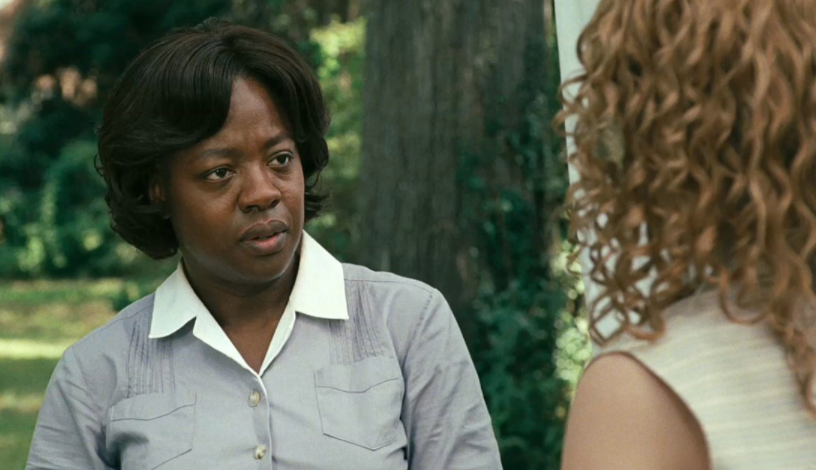In one of many classic examples of how Hollywood has fucked over black people since the film industry’s inception, the very existence of The Help speaks to how movies “about” the black experience are so often designed to somehow make white people feel better “reconciled” with themselves. As though they have put in the work to assure all concerned that they are doing something to make themselves actively aware of the deep-seated systemic racism that has flourished in the U.S. since long before the 1960s (the era everyone has taken a shine to right now for its civil rights protests cachet).
When The Help first arrived in theaters (remember those?) in 2011, the white savior trope was still easily passable without “too much” eyebrow-raising. After all, this was also on the heels of 2009’s Sandra Bullock-starring The Blind Side. And after The Help, of course, came Quentin Tarantino’s Django Unchained in 2012, a white savior movie through and through, even if fans felt it was mitigated by Tarantino’s deliberate sense of exploitation (as though deliberateness somehow makes it better).
Yet even after the years have gone by, and we’ve seen very overtly that black stories are not really black stories when told entirely by white people (with The Help being directed by a white man and based on the novel of a white woman), the Caucasians continue to find them irresistible. Serving yet again to iterate the point that black voices are persistently silenced or muzzled for a purpose that suits the white person’s aim of appearing evolved on addressing racism. So long as the white main character comes across as the one doing all the heavy lifting through their “sacrifice.”
Emma Stone’s portrayal of Eugenia “Skeeter” Phelan, an aspiring writer, is ultimately the plot’s focus, emphasizing film critic Wesley Morris’ point at the time that it was yet “another Hollywood movie that sees racial progress as the province of white do-gooderism. Skeeter enjoys all the self-discovery and all the credit.” Viola Davis herself expressed regret in 2018 over having taken the role of Aibileen Clark, diplomatically admitting, “I just felt that at the end of the day that it wasn’t the voices of the maids that were heard. I know Aibileen. I know Minny. They’re my grandma. They’re my mom. And I know that if you do a movie where the whole premise is, I want to know what it feels like to work for white people and to bring up children in 1963, I want to hear how you really feel about it. I never heard that in the course of the movie.”
To heighten that sentiment, the maid that author Kathryn Stockett based her novel on, Ablene Cooper, would end up suing when the adaptation came out–calling her celluloid incarnation “embarrassing”–only for the case to be thrown out by a Mississippi judge. But there’s black justice for you. Nonetheless, the film skyrocketing to Netflix’s number one most watched movie during the Black Live Matters protests seems only to prove that the work being done right now by black people could, once again, take many generations to pay off. Writer and editor Elamin Abdelmahmoud put it best when he remarked, “I beg of you: stop watching The Help, it will not make you better at facing your privilege or whatever.” The eye roll was mutually expressed by TV writer Rheeqrheeq Chainey, who slammed, “You is predictable, you is not listening, you is perpetuating a white savior narrative that suits you.”
The easy reliance on a movie like this is particularly insulting at a time when outlets such as Criterion Collection and IFC are offering, let’s say, more emboldened content than the pandering nature of The Help, a movie that seeks only to coddle white fragility during a new era in which tolerance for such is no longer acceptable if institutionalized racism has any chance of being stamped out. Alas, The Help is yet another flaccid equivalent of white people putting up a black square on their Instagram to somehow indicate acknowledgement and understanding when, in fact, all such behavior affirms that the blancos continue to relish allowing racism, and complicity in its propagation, to go over their head. But hey, it’s a start, they’ll reason.




















